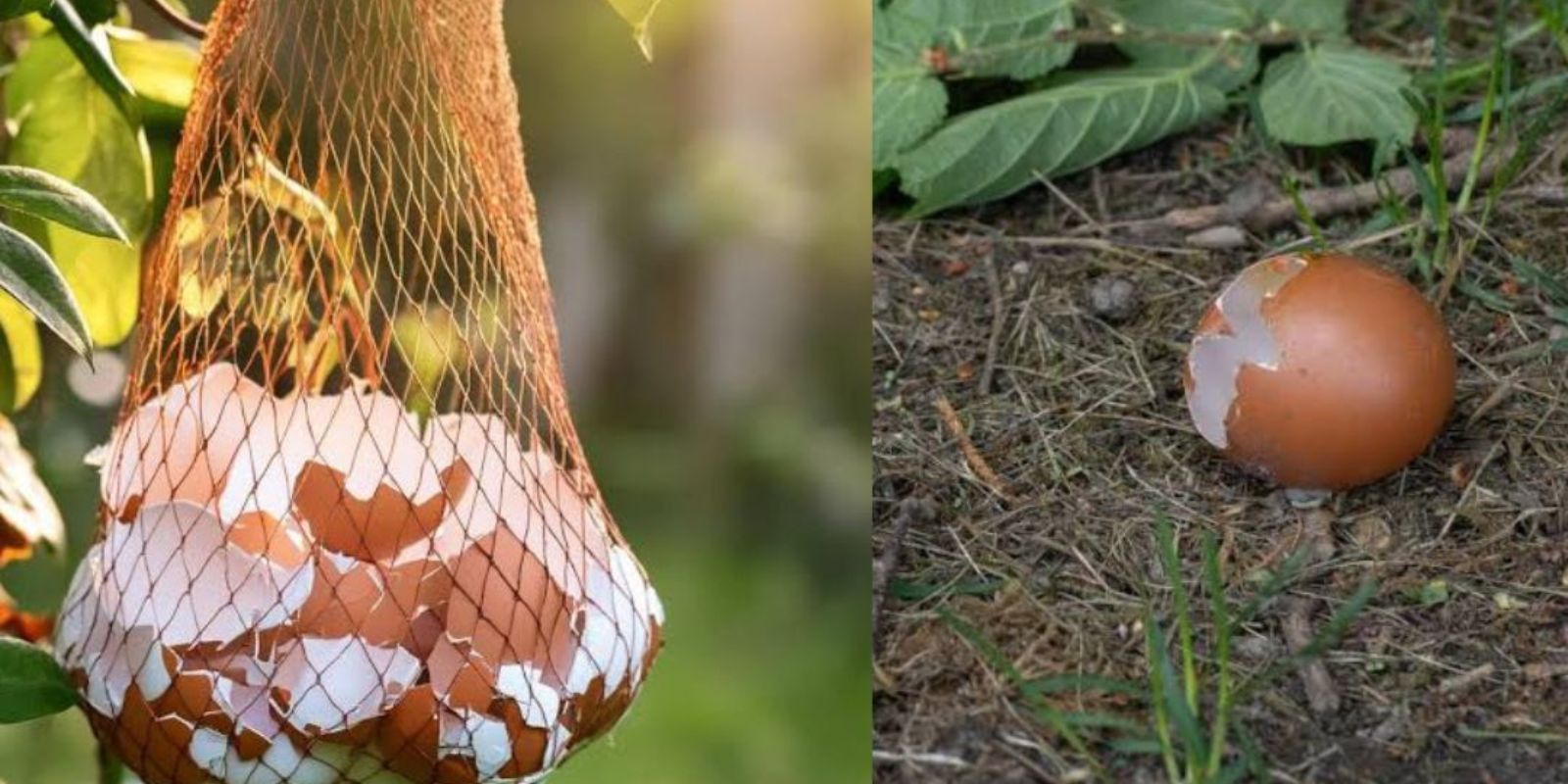When it comes to sustainable gardening, one of the best-kept secrets is right in your kitchen—eggshells. Often discarded as waste, eggshells are packed with nutrients and practical uses that can greatly enhance your garden’s health. Hanging a mesh bag of eggshells in your garden is an ingenious way to maximize their benefits while keeping things tidy and organized. Let’s explore how this simple method can revolutionize your gardening routine.
Why Eggshells Are a Gardening Treasure
Eggshells are composed primarily of calcium carbonate, the same substance that makes up limestone. This makes them an excellent source of calcium, a vital nutrient for plants, particularly for root development and preventing issues like blossom-end rot in tomatoes and peppers. Additionally, eggshells contain trace amounts of magnesium, potassium, and phosphorus, all of which contribute to plant health.
But eggshells don’t just improve your soil; they also deter pests, boost compost quality, and support beneficial wildlife. When hung in a mesh bag, their potential is even more accessible and manageable.
How to Prepare Eggshells for Gardening
Before diving into the benefits, it’s essential to prepare your eggshells properly:
- Rinse Thoroughly: Wash eggshells to remove any leftover egg whites or yolk to avoid attracting unwanted pests or creating foul odors.
- Dry Completely: Let them air dry or bake them briefly in the oven to eliminate bacteria.
- Crush Them: Crush the shells into small pieces or grind them into a powder, depending on their intended use.
- Store in a Mesh Bag: Use a breathable mesh bag to hang them in your garden. This ensures easy access while allowing air circulation to prevent mold.
8 Incredible Benefits of Hanging Eggshells in Your Garden
- Nutrient Enrichment
As eggshells decompose, they slowly release calcium and other minerals into the soil. This steady nutrient supply is particularly beneficial for heavy feeders like tomatoes, peppers, and eggplants, which thrive in calcium-rich environments. - Pest Deterrent
Crushed eggshells can deter pests like slugs and snails. The jagged edges irritate their soft bodies, creating a natural barrier around your plants. Hanging a mesh bag nearby makes it easy to grab some crushed shells for pest control whenever needed. - Compost Booster
Adding eggshells to your compost pile enriches the mix with essential minerals. Hanging the mesh bag allows you to collect and crush eggshells easily before tossing them into the compost bin, speeding up decomposition and nutrient release. - Soil pH Balancer
If your garden soil is too acidic, eggshells can help. Calcium carbonate neutralizes acidity, improving soil structure and creating a more balanced environment for plant roots to thrive. - Waste Reduction
Using eggshells in your garden is an excellent way to reduce kitchen waste. Instead of tossing them into the trash, repurpose them into a natural resource that benefits your garden and the environment. - Bird Attractant
Eggshells are a valuable calcium source for birds, especially during nesting season. Hanging a mesh bag of eggshells encourages birds to visit your garden, where they’ll also help control pests like caterpillars and aphids. - Visual Indicator
The mesh bag acts as a convenient visual reminder to collect and use eggshells. Seeing the bag fill up can motivate you to continue recycling this valuable resource, creating a habit of sustainable gardening practices. - Microbial Activity Boost
Eggshells support beneficial microbial activity in the soil. These microbes help break down organic matter, making nutrients more accessible to plants and improving soil health over time.
How to Use Eggshells from the Mesh Bag
Once you’ve filled your mesh bag with prepared eggshells, here’s how to put them to work in your garden:
- Sprinkle Around Plants: Crush the shells further and sprinkle them around the base of plants as a slow-release fertilizer.
- Mix into Compost: Add crushed shells to your compost pile or bin to enhance its nutrient content.
- Create a Pest Barrier: Use larger crushed pieces around vulnerable plants to deter slugs and snails.
- Make Calcium Tea: Soak crushed eggshells in water for several days to create a calcium-rich liquid fertilizer. Use it to water your plants for an instant boost.
- Feed the Birds: Scatter some crushed shells near bird feeders to provide nesting birds with much-needed calcium.
Additional Tips for Success
- Combine with Other Organic Materials: Eggshells are most effective when used alongside other organic materials, such as compost or mulch, to create a well-rounded soil amendment.
- Avoid Overuse: While eggshells are beneficial, excessive amounts can create an imbalance in the soil. Use them in moderation.
- Grind for Faster Results: If you’re short on time, grinding eggshells into a fine powder accelerates decomposition and nutrient release.
Environmental and Sustainable Benefits
Using eggshells in your garden isn’t just good for plants; it’s good for the planet. By repurposing kitchen waste, you reduce landfill contributions and promote a more sustainable lifestyle. Plus, the practice aligns with the principles of organic gardening, avoiding synthetic fertilizers and chemicals that can harm the environment.
Why You Should Try This Today
Hanging a mesh bag of eggshells in your garden is a simple, cost-effective, and eco-friendly way to nurture your plants and improve your soil. Whether you’re an experienced gardener or just starting, this hack is an easy step toward sustainable gardening success.
What’s your favorite way to use kitchen scraps in the garden? Share your tips below!
🌱 #GardeningTips #SustainableLiving #EggshellsInTheGarden #EcoFriendlyGardening #OrganicGardening #SoilHealth

